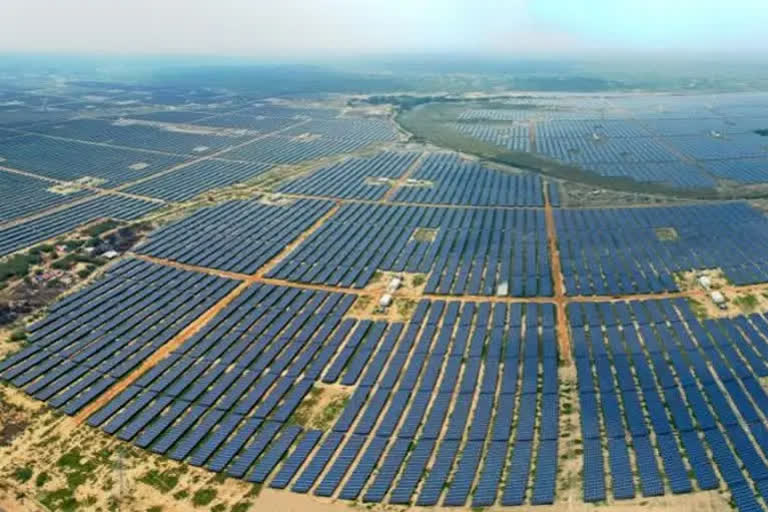New Delhi:The solar energy generation capacity addition rose 335 per cent to 7.4 GW in the January-September period this year from 1.73 GW a year ago, said Mercom India Research. "In the first nine months of 2021 (9M 2021), India added over 7.4 gigawatts (GW) of solar, a 335 per cent increase YoY (year-on-year) compared to the 1.73 GW installed in the same period in 2020," according to Mercom India Research's newly released Q3 2021 India Solar Market Update.
According to the update, India added 2,835 megawatts (MW) of solar in the third quarter (Q3 July-September) of the calendar year (CY) 2021, up 14 per cent compared to 2,488 MW installed in Q2 2021 (April-June). Year-over-year (YoY) installations in Q3 surged 547 per cent.
Installations grew despite market challenges, according to the report.
Increased raw materials costs, severe volatility in module availability and price, curtailment of power in several states, and high freight charges have added to the difficulties for the developers, it stated."
Despite supply challenges, the Indian solar market is headed towards one of best years on record...
"We expect a strong 2022 despite the high price of components and uncertainties surrounding the Great Indian Bustard (GIB) related transmission issue in Rajasthan. An increase in GST, curtailment and payment issues are adding to the challenges facing developers and constraining growth," said Raj Prabhu, CEO of Mercom Capital Group in the statement.
Also Read:India-led International Solar Alliance signs UN pact at COP26 in Glasgow
There was a steep rise in the average selling prices of solar modules during the third quarter. Prices of mono PERC modules surged over 15 per cent q-o-q (quarter-on-quarter), with supply constraints after major manufacturers started cutting output in China. Freight charges peaked at around USD 9,000 per container in the quarter, according to the statement.
"Manufacturing capacity ramp-up continues at a brisk pace as domestic producers look to take advantage of the 40 per cent basic customs duty scheduled to be imposed from April 2022. In the second quarter of next year, we can expect to see procurement strategies starting to change drastically, as imports become expensive," said Prabhu.
